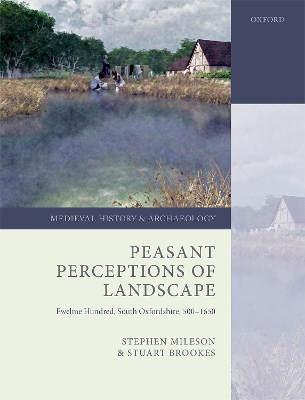Medieval History and Archaeology
1 total work
Peasant Perceptions of Landscape marks a change in the discipline of landscape history, as well as making a major contribution to the history of everyday life. Until now, there has been no sustained analysis of how ordinary medieval and early modern people experienced and perceived their material environment and...Read more
Peasant Perceptions of Landscape marks a change in the discipline of landscape history, as well as making a major contribution to the history of everyday life. Until now, there has been no sustained analysis of how ordinary medieval and early modern people experienced and perceived their material environment and constructed their identities in relation to the places where they lived. This volume provides exactly such an analysis by examining peasant
perceptions in one geographical area over the long period from AD 500 to 1650.
The study takes as its focus Ewelme hundred, a well-documented and archaeologically-rich area of lowland vale and hilly Chiltern wood-pasture comprising fourteen ancient parishes. The analysis draws on a range of sources including legal depositions and thousands of field-names and bynames preserved in largely unpublished deeds and manorial documents. Archaeology makes a major contribution, particularly for understanding the period before 900, but more generally in reconstructing the fabric of
villages and the framework for inhabitants' spatial practices and experiences. In its focus on the way inhabitants interacted with the landscape in which they worked, prayed, and socialised, Peasant Perceptions of Landscape supplies a new history of the lives and attitudes of the bulk of the rural
population who so seldom make their mark in traditional landscape analysis or documentary history.
perceptions in one geographical area over the long period from AD 500 to 1650.
The study takes as its focus Ewelme hundred, a well-documented and archaeologically-rich area of lowland vale and hilly Chiltern wood-pasture comprising fourteen ancient parishes. The analysis draws on a range of sources including legal depositions and thousands of field-names and bynames preserved in largely unpublished deeds and manorial documents. Archaeology makes a major contribution, particularly for understanding the period before 900, but more generally in reconstructing the fabric of
villages and the framework for inhabitants' spatial practices and experiences. In its focus on the way inhabitants interacted with the landscape in which they worked, prayed, and socialised, Peasant Perceptions of Landscape supplies a new history of the lives and attitudes of the bulk of the rural
population who so seldom make their mark in traditional landscape analysis or documentary history.
